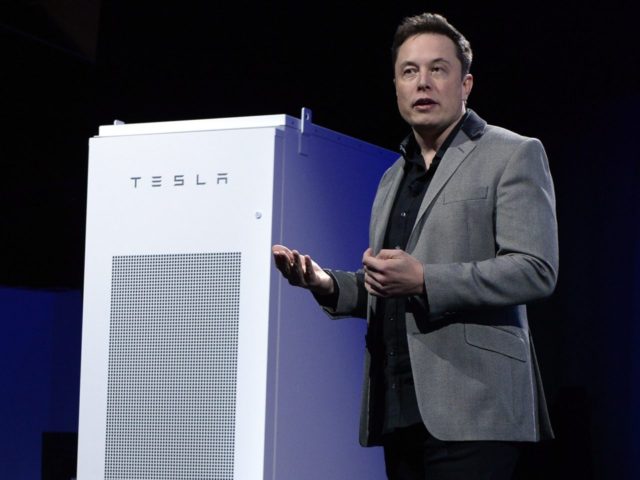Tesla Powerpack announced that it is the exclusive winner of the competition to provide Southern California Edison 80 megawatts (MWh) of battery storage at a price of about $100 million.
Tesla announced its stationary storage battery system in May, as a spinoff of its car batteries. The company offers Powerpack battery networks for commercial and industrial uses, and Powerwall batteries for residential purposes. Both are now in production at the company’s “Gigafactory,” a $5 billion facility being built outside of Reno, Nevada.
The announcement comes as California continues to recover from the recent Aliso Canyon disaster, the second largest methane leak and most polluting in US history. A 2004 methane release in Texas from the collapse of a natural gas storage involved more methane, but a fire converted most of that methane into carbon dioxide. (Although carbon dioxide emissions are regulated, it is a less potent greenhouse gas than methane.)
With California’s largest natural gas storage facility out of operation, stand-by power availability has been extremely tight. If severe weather knocks out another power source, the state could suffer blackouts.
The California energy commission warned this summer that the loss of Aliso Canyon could cause up to 14 days of rotating power brownout due to gas shortages. The relatively mild California spring and summer prevented the disruption. Tesla’s Powerpack batteries are expected to provide plenty of backup power to off-set any winter natural gas shortage.
Tesla reports that it will deliver the 80MWh Powerpack battery system before the end of 2016 to be installed at Southern California Edison’s Mira Loma substation.
“Upon completion, this system will be the largest lithium ion battery storage project in the world,” Tesla posted on its website. “When fully charged, this system will hold enough energy to power more than 2,500 households for a day or charge 1,000 Tesla vehicles.”
Neither the State of California, Southern California Edison, nor Tesla disclosed the size of the award. Bloomberg estimated that with a 2MWh Powerpack system costing $2.9 million, the contract would be about $100 million.
Utility grid operators are beginning to embrace battery storage as a much more reliable method of providing renewable energy than “intermittent” wind and solar power, which require a 100 percent natural gas power plant back-up. Batteries are also much more economical for the limited time buffering of power availability.
CEO Elon Musk claims that Tesla will change the “energy infrastructure of the world.” He successfully lobbied the California Public Utility Commissioner to mandate that utilities must install at least 1.3 gigawatts of battery storage by 2020. In a statement about the Powerpack contract, Musk added:
“In order to achieve a sustainable energy future, one which has high penetration of solar and electric vehicles, the world needs a two-way, flexible electric grid. The electric power industry is the last great industry which has not seen the revolutionary effects of storage. Working in close collaboration with Southern California Edison, the Tesla Powerpack system will be a landmark project that truly heralds the new age of storage on the electric grid.”
This article has been updated to reflect the fact that the Southern California Gas Company was responsible for the gas leak, not Southern California Edison.

COMMENTS
Please let us know if you're having issues with commenting.